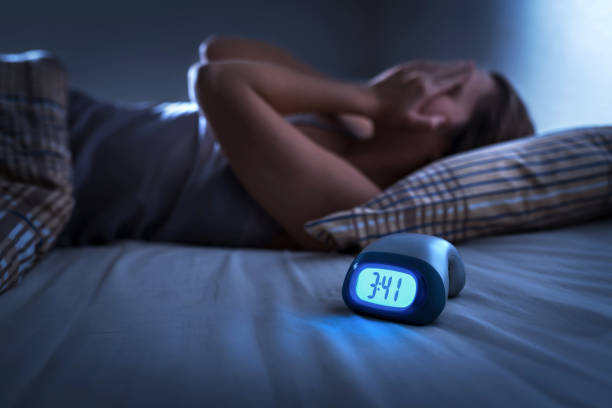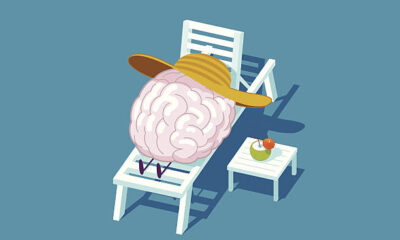Entertainment
Why You Find It Difficult To Sleep

Sleep is an essential aspect of human health and well-being, yet many individuals find it difficult to achieve a restful and rejuvenating night’s sleep. There are numerous factors that can contribute to difficulties with falling or staying asleep, and understanding these factors is crucial in addressing and improving sleep quality.
One common reason people find it difficult to sleep is stress and anxiety. The demands of modern life, coupled with personal and professional responsibilities, can lead to heightened stress levels that make it challenging to relax and unwind at the end of the day. Anxiety and worry can also create a mental barrier to falling asleep, as the mind becomes preoccupied with concerns and thoughts, preventing the relaxation necessary for sleep.
Environmental factors, such as excessive noise, light, or uncomfortable room temperature, can also disrupt sleep. Disruptions from sources such as traffic, loud neighbors, or electronic devices can interfere with the body’s ability to settle into a restful state. Similarly, an overly warm or cold sleep environment can make it difficult for the body to regulate its temperature and achieve a comfortable sleeping state.
Another significant factor that can impact sleep is the use of electronic devices, particularly before bedtime. The blue light emitted by smartphones, tablets, and computers can interfere with the body’s natural production of melatonin, the hormone that regulates sleep-wake cycles. Additionally, engaging in stimulating activities or consuming stimulating content, such as action-packed movies or intense social media interactions, can make it harder for the mind to transition into a calm and sleepy state.
Physical discomfort and health issues also play a role in sleep difficulties. Conditions such as chronic pain, acid reflux, or respiratory problems can make it challenging to find a comfortable sleeping position and stay asleep throughout the night. Additionally, certain medications or medical conditions can have side effects that disrupt normal sleep patterns.
Disruptions to regular sleep schedules, such as shift work or jet lag, can also make it difficult for individuals to establish consistent and restful sleep patterns. The body’s internal clock, or circadian rhythm, can become disrupted when sleep patterns are inconsistent, leading to difficulties with falling asleep and waking up at desired times.
Lastly, lifestyle choices, such as excessive consumption of caffeine or alcohol, irregular exercise routines, and poor dietary habits, can negatively impact sleep quality. Caffeine, for example, is a stimulant that can interfere with the body’s ability to enter a relaxed state conducive to sleep, while alcohol, despite its sedative effects, can disrupt the quality of sleep.
-

 Breaking News3 years ago
Breaking News3 years agoBREAKING: CBN Redesigns Naira Notes
-

 Breaking News2 years ago
Breaking News2 years agoBREAKING: Tinubu Considers Temporary Subsidy On Petrol
-

 Breaking News2 years ago
Breaking News2 years agoJUST IN: Gbajabiamila Dies In UK
-

 News3 years ago
News3 years agoDrama As Church Gives Certificate Of Virginity To Ladies After Testing Them (See Photos)
-

 Crime4 years ago
Crime4 years agoUproar As Student Teacher On Teaching Practice Impregnates 24 Girls, Headmistress, Four Female Teachers
-

 Breaking News10 months ago
Breaking News10 months agoJUST IN : Sacked Osun LG Chairman Killed Few Minutes After Returning To Office
-

 Breaking News2 years ago
Breaking News2 years agoBREAKING: Dangote Speaks As BUA Reduces Price Of Cement
-

 Crime3 years ago
Crime3 years agoJUST IN: Gunmen Storm Osogbo, Kill Man, Daughter Few Hours After His Wife Put To Bed (Photos)












